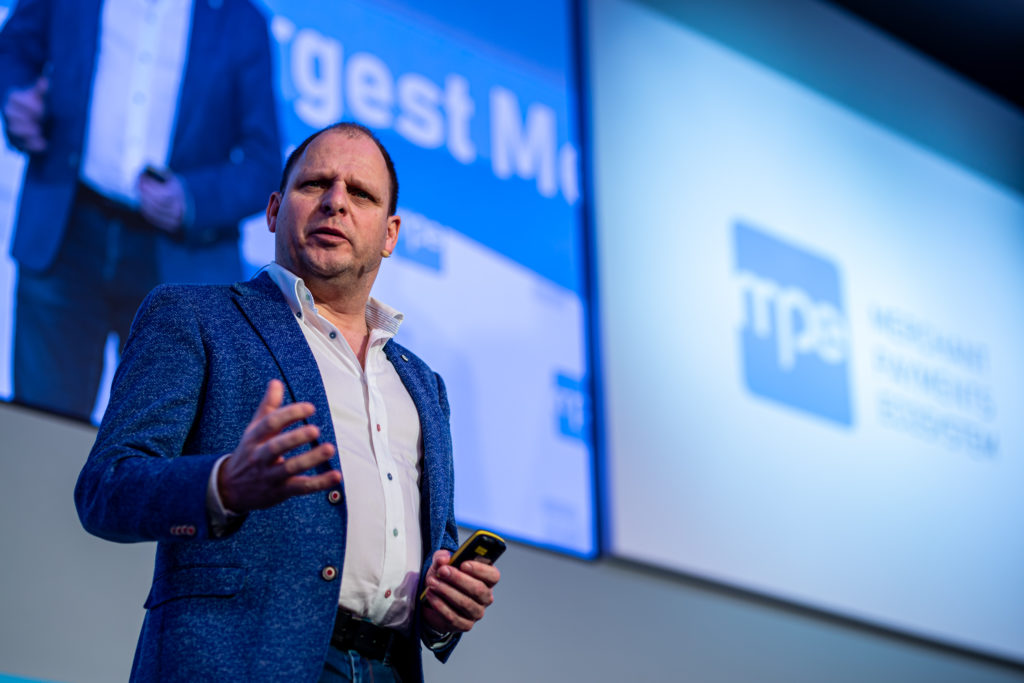Introduction
Every year, the Merchant Payments Ecosystem (MPE) conference in Berlin is the meeting place for payments professionals, merchants, banks, PSPs, vendors, and everyone actively involved in the payments space. Established companies, as well as start-ups, came together between 18 and 20 February to debate on the latest innovation, developments, and trends in the payments space, to network and exchange best practices and business ideas. Attendees discussed what is currently happening in the payments ecosystem, what are the key drivers for change, how much growth and change is driven by consolidation, what is happening in terms of platforms, how data and digital currencies are perceived, and more.
The conference featured amazing speakers and inspiring panel discussions. What this edition brought new was Day 0 dedicated to merchants, the startup challenge track, masterclass workshop sessions, and the voice of merchants sessions, all complementing the three days filled with innovation, inspiration, collaboration, high-quality agenda, and networking.

The main takeaways from the event
The 2020 edition of MPE was not necessarily about new topics. People discussed regulation, user experience, and digitalization from new perspectives, bringing forth new insights and examples of good practice. In particular, we’ve learned some insightful things worth sharing:
The event did not miss the fun part. Jokes on the cash-savvy Germans, Trump’s Twitter account now seen as the new FX driver for the USD, or David Birch’s ‘Facebucks’ (the Libra coin) delighted the audience.

ibanXS at MPE
For us, MPE was an amazing and inspiring experience. We took part in a panel discussion on open banking, moderated by David Parker from Polymath Consulting, and share our insights on what PSD2 means in practice.
During the panel dedicated to open banking, together with Oscar Berglund from Trustly, Nilixa Devlukia from Payments Solved, and Maurice Jongmans from VBIN, our CCO Edy Bruinooge engaged in a discussion that gravitated around payment innovation by the new entities (AISPs and PISPs), updates, opportunities, and implications for PSPs and acquirers. One of the most important takeaways was that the industry does not necessarily need a PSD3, but a clearer RTS, or even and RTS2. In addition, the industry may need two to three years to see the full potential of payment initiation and account information services and customers perceive the real value brought by the new services.

ibanXS presented itself as the solution for all the current PSD2 hurdles
Right before the panel discussion, we presented our takeaways from connecting with the European banks while building our platform.
In 2018, PSD2 was a debate point, everyone was interested to learn more; in 2019, it was a panic point, everyone feared it. In 2020, PSD2 is still on everyone’s agenda. So why have we chosen to address this topic and why is it so important to us at ibanXS?
When we started with ibanXS in May 2019, we aimed to make it easier to access any European bank, anytime. We realized it was hard to make and maintain all the connections, and there was a need for a specialized company to work it out for businesses and consumers. Therefore, we tried to be that one company.
It is not a novelty that PSD2 contributes to an open, fair, and secure payments landscape in Europe. The ASPSP APIs opened up for testing on March 14, 2019, but the availability and technical stability of the APIs so far are not how we’d expected, as testing environments (sandboxes) are not available for all European banks. Of course, openness is a long process but we were eager to get started and to connect with all the European banks.
For us, sandbox boarding procedures were sometimes time-consuming; there were cases when we had to wait for more than a week for access. Some eIDAS test certificates did not work and integrations were only possible with around half of sandboxes. Occasionally, APIs were hard to find on bank websites as they were unindexed on internal and external search tools, and we had to opt for manual discovery. In some cases, APIs were missing essential information, such as account holder name, IBANs, transaction history, and more.
Moreover, documentation on the APIs varied considerably; some of it was incomplete. Sometimes documentation was presented in local languages only or it frequently did not clarify which countries or bank subsidiaries were covered by the API.
What is the lesson and why we consider that the challenges were a blessing for us? Because it helped us improve ourselves and come up with a strong offering. ibanXS is ready to go the extra mile for you to make it possible to access all the European banks. Contact us to learn how you can access any European bank!